CANO World Press Freedom Day Award
Guillermo Cano Winners:
1997, 1998, 1999, 2000 , 2001 and 2002 winner
 The UNESCO/Guillermo Cano World Press Freedom Prize, instituted in 1997, is intended to honour each year a person, organization or institution that has made an outstanding contribution to the defence and/or promotion of press freedom anywhere in the world, especially if some risk was involved. It was established on the initiative of UNESCO's Executive Board and is formally conferred by the Director-General of the Organization, on the occasion of World Press Freedom Day, 3 May.
The UNESCO/Guillermo Cano World Press Freedom Prize, instituted in 1997, is intended to honour each year a person, organization or institution that has made an outstanding contribution to the defence and/or promotion of press freedom anywhere in the world, especially if some risk was involved. It was established on the initiative of UNESCO's Executive Board and is formally conferred by the Director-General of the Organization, on the occasion of World Press Freedom Day, 3 May.
The Prize is named in honour of Guillermo Cano Isaza, a Colombian journalist assassinated by the drug cartels on 17 December 1986, in front of the offices of his newspaper, El Espectador, in Bogota.
Guillermo Cano's fate exemplifies the price paid by journalists and the media the world over: Journalists are imprisoned and ill-treated on account of their profession every day. The fact that these crimes for the most part go unpunished is even more alarming.
The US $25,000 UNESCO/Guillermo Cano Prize is awarded on the recommendation of an independent jury of 14 news professionals chaired by Mia Doornaert, President of UNESCO's Advisory Group for Press Freedom. Names are submitted by regional and international non-governmental organizations working for press freedom and by UNESCO Member States.
2002 Winner - Geoffrey Nyarota, Zimbabwe
Zimbabwean Journalist Geoffrey Nyarota; Editor-in-Chief of Zimbabwe's only independent daily newspaper, The Daily News, won the UNESCO/Guillermo Cano World Press Freedom Prize for 2002. This was announced by UNESCO Director-Genera! Koichiro Motsuura.
The Award will be conferred on Nyarota on 03 May 2002 in Malacañan Palace Manila, in a ceremony organized by UNESCO to mark World Press Freedom bay. President Gloria Macapagal-Arroyo is guest of honor for the event.
The $25,000 prize is awarded each. year on the recommendation of an independent jury of journalists from all over the world. This year's jury was, chaired by Oliver Clarke, Chairman of cleaner Company Limited in Jamaica.
Mr. Narota, 50, has been tireless in denouncing corruption and criminal activities among top government officials in his country despite continuing threats and intimidation against him. He has been arrested and detained, repeatedly received death threats, and has pending libel suits. In January 2001, a bomb exploded of the newspaper's plant in Harare. The Daily News has not missed a single issue and is now the country's biggest-selling newspaper with a circulation that far exceeds government-controlled newspapers.
"The courage and persistence of Geofrey Nyarota, who has not yielded to the enormous pressure on him in the last few years, is an example to all the world's journalists Matsuura said in his tribute to this year's awardee.
In 1983, Nyarota lost his job as a reporter at The Chronicle after he broke the story on "Willowgate" scandal which forced the resignation of five Cabinet ministers. The newspaper's management said it was removing him for "his own safety." In 1991, he was named editor of Financial Gazette but was dismissed in a dispute over editorial control. He later joined the Nordic {School of Journalism in Maputo, Mozambique and taught in several southern r African countries before returning to Zimbabwe in 1998 to organize the '' Associated Newspaper of Zimbabwe and the Daily News in 1999.
The Daily News figured prominently in the coverage of the invasion of white-owned farms by war veterans encouraged by the ruling ZANU-PF party. Mr. Nyarota was arrested for denouncing the use of police vehicles in the pillages. The newspapers coverage of the issue was one of the reasons for the party's loss in the May 2000 elections. This was followed by a series of threats, both to his newspaper and his own life.
The UNESCO/Cano Press Freedom Prize was created in 1997 to honor the work of on individual, organization or institution defending or promoting" freedom of expression anywhere in the world. It was named after Colombian journalist (Guillermo Cano who was murdered for having criticized the activities of powerful drug barons in his country.
The previous journalists who won the Prize are U WIN TIN (2001) of Myanmar who continues to be in jail since 1989, NIZAR NAYYOUF (Syria) in; 2000, JESUS BLANCORNELAS (Mexico) in 1999, CHRISTINA ANYANWU (Nigeria) in 1998 and GAO YU (China) in 1997.
2001 - U Win Tin, Myanmar
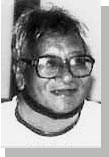 This year's laureate, U Win Tin - former editor of the daily Hanthawati newspaper in Myanmar, vice-chair of Myanmar's Writers' Association and a founder of the National League for Democracy - was arrested in July 1989. Three months later, accused of being a member of the banned Communist Party of Myanmar, he was sentenced to 14 years in prison and transported to Insein jail in Rangoon. In 1996, U Win Tin was tried in prison and sentenced to an additional five years for breaking prison regulations prohibiting the possession of writing materials.
This year's laureate, U Win Tin - former editor of the daily Hanthawati newspaper in Myanmar, vice-chair of Myanmar's Writers' Association and a founder of the National League for Democracy - was arrested in July 1989. Three months later, accused of being a member of the banned Communist Party of Myanmar, he was sentenced to 14 years in prison and transported to Insein jail in Rangoon. In 1996, U Win Tin was tried in prison and sentenced to an additional five years for breaking prison regulations prohibiting the possession of writing materials.
Later that year he was moved to Myingyan jail north of Rangoon, where his family and friends could no longer visit him or send him food and medicine. In early October 1997, he was transferred to Rangoon General Hospital, where he remains and is reported to be seriously ill. His prison sentence will only end in July 2008, unless he renounces all political activities, which he refuses to do.
2000 - Nizar Nayyouf, Syria
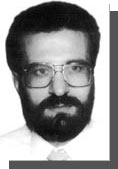 The 2000 UNESCO/Guillermo Cano World Press Freedom Prize was awarded on 17 March 2000 to Syrian journalist Nizar Nayyouf by UNESCO Director-General Koichiro Matsuura on recommendation of an international jury of media professionals.
The 2000 UNESCO/Guillermo Cano World Press Freedom Prize was awarded on 17 March 2000 to Syrian journalist Nizar Nayyouf by UNESCO Director-General Koichiro Matsuura on recommendation of an international jury of media professionals.
Mr. Nayyouf, editor-in-chief of the Sawt al-Democratiyya (The Voice of Democracy), published by the Committee for the Defence of Democratic Freedom in Syria (CDF), and a contributor to the Al-Hurriya weekly has been in prison since January 10, 1992. He was sentenced to ten years of forced labour for belonging to the banned CDF and for disseminating "false" information. Weakened by torture and held in solitary confinement in the military prison of Mezze in Damascus, Mr Nayyouf's health is reported to be in an alarming state.
In 2001, at the occasion of the Jury session, the Chairperson of the jury, Oliver Clarke, voiced grave concern about Nizar Nayyouf: "We are deeply concerned for the very survival of Nizar Nayyouf. We understand that his condition has deteriorated and that his life is in danger", Mr Clarke said. The jury issued a statement saying: "We, the members of the jury, hereby kindly request the Director-General of UNESCO to continue his efforts and discussions with the Syrian authorities so that a solution can be reached for the release of Mr Nayyouf on humanitarian grounds."
Mr Nayyouf has been released on 6 May 2001.
1999 - Jesus Blancornelas, Mexico
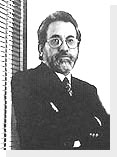 Jesus Blancornelas of Mexico who survived a 1997 assassination attempt for his exposes on corruption and drug trafficking in Mexico was chosen to receive the 1999 UNESCO/Guillermo Cano World Press Freedom Prize.
Jesus Blancornelas of Mexico who survived a 1997 assassination attempt for his exposes on corruption and drug trafficking in Mexico was chosen to receive the 1999 UNESCO/Guillermo Cano World Press Freedom Prize.
Jesus Blancornelas will be awarded the $25,000 prize on 3 May in Bogota, Colombia, as part of the celebrations for World Press Freedom Day. Both activities are part of UNESCO's mission to promote the free flow of information and its activities in the interest of press freedom, media independence and pluralism.
Mr. Blancornelas is the co-founder and editor of the Tijuana-based Zeta news weekly as well as the vice-president of the Mexican Society of Journalists, which he helped to create in 1998 to fight for press freedom. Mr. Blancornelas has also been investigating the 1988 murder of Zeta co-founder Hector Felix Miranda.
The prize, chosen by a jury of 14 news professionals from around the world, honours each year a person, organization or institution that has made a notable contribution to the defence and/or promotion of press freedom anywhere in the world, especially if it involves risk.
1998 - Christina Anyanwu, Nigeria
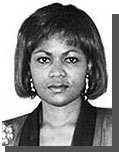 The 1998 UNESCO/Guillermo Cano World Press Freedom Prize was awarded by UNESCO Director-General Federico Mayor to the Nigerian journalist Christina Anyanwu who is the publisher and editor in chief of "The Sunday Magazine" (Lagos, Nigeria).
The 1998 UNESCO/Guillermo Cano World Press Freedom Prize was awarded by UNESCO Director-General Federico Mayor to the Nigerian journalist Christina Anyanwu who is the publisher and editor in chief of "The Sunday Magazine" (Lagos, Nigeria).
According to the World Press Freedom Committee and Reporters Sans Frontieres which proposed her for the prize, she is being held in detention in a prison in the north-east of Nigeria in particularly difficult conditions. She was arrested following the publication of an article about an attempted coup against the Nigerian government on March 1, 1995, and was condemned to life imprisonment by a special military tribunal in a trial held behind closed doors on July 4, 1995.
Her sentence was commuted to 15 years on October 10, 1995. According to the same sources, her trial was marked by numerous irregularities. She was, notably, denied the right of appeal.Christina Anyanwu is one of four journalists held in detention since the attempted coup in her country where infringements of the rights of the journalists and freedom of the press are innumerable.
1997 - Gao Yu, China
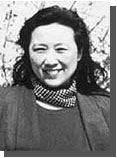 On 21 March 1997, the UNESCO/Guillermo Cano World Press Freedom Prize was awarded by an independent international jury to the Chinese journalist Gao Yu. "The jury was unanimous in choosing Gao Yu who has been fighting for years for press freedom in her country.
On 21 March 1997, the UNESCO/Guillermo Cano World Press Freedom Prize was awarded by an independent international jury to the Chinese journalist Gao Yu. "The jury was unanimous in choosing Gao Yu who has been fighting for years for press freedom in her country.
She has paid, and is still paying, with her own freedom for her commitment to media independence which UNESCO supports," said Jury President and French journalist Claude Moisy, President of UNESCO's Advisory Group for Press Freedom. According to the World Association of Newspapers (WAN), which nominated the Chinese journalist, Gao Yu began her career in 1979 as a reporter for the China News Service.
In 1988 she became deputy editor-in-chief of Economics Weekly, run by dissident intellectuals. She also worked as a freelance journalist for several newspapers in China and Hong Kong. In November 1988, she published an article in Hong Kong's Mirror Monthly which the Mayor of Beijing called the "political programme" of the "turmoil and rebellion." He labelled Gao Yu an "enemy of the people." She was detained in 1989 following the Tiananmen protests and released 14 months later because of health problems. She was arrested again on October 2, 1993 and sentenced in November 1994 to six year imprisonment for "leaking state secrets."